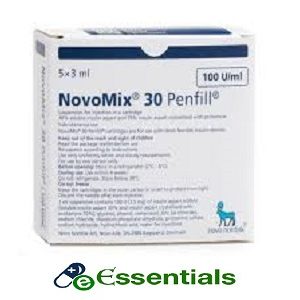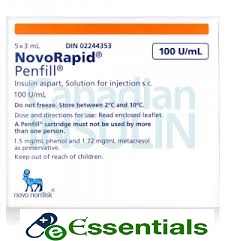Amaryl M 1mg 10pcs
৳ 120.10
Brand Name : Amaryl M 1mg
Manufacturer : Sanofi Bangladesh
Indications
- When glycemic control cannot be achieved with metformin or glimepiride monotherapy;
- In case of replacement of combination therapy of glimepiride and metformin monotherapy in order to administer this combined medicine
Therapeutic Class
Metformin is an antihyperglycemic agent which improves glucose tolerance in patients with type 2 diabetes, lowering both basal and postprandial plasma glucose. Metformin reduces hepatic glucose production by inhibiting gluconeogenesis and glycogenolysis, and stimulates intracellular glycogen synthesis by acting on glycogen synthase. In muscle, it increases insulin sensitivity, improving peripheral glucose uptake and utilization. Metformin also delays intestinal glucose absorption. Metformin increases the transport capacity of all types of membrane glucose transporters (GLUTs) known to date.
Dosage & Administration
Typically the dose of medicine this combination should be determined by the target glucose concentration in blood. It is necessary to take the lowest dose that would be sufficient to achieve the desired metabolic control. During treatment with medicine this combination, concentration of glucose in blood should be regularly determined. In addition, regular control of percentage of glycated hemoglobin is also recommended. Incorrect administration of the medicine, such as skipping of the next dose, should never be replenished by subsequent administration of higher doses.
Contraindications
- Diabetes mellitus type 1
- Diabetic ketoacidosis including history of diabetic coma and precoma, acute or chronic metabolic acidosis
- Increased sensitivity to sulfonylureas, sulfonamides or biguanides, as well as any of the excipients of the medicine
- Severe hepatic dysfunction (lack of experience of administration; in order to provide adequate glycemic control, such patients should be treated with insulin)
- Patients on hemodialysis (lack of experience of administration)
Side Effects
Pregnancy & Lactation
Breast-feeding: In order to avoid transfer of medicine to the child’s body through breast milk, women should not take this medicine in breastfeeding period. In case of need for hypoglycemic therapy, the patient must be transferred to the insulin treatment, otherwise she must discontinue breastfeeding.
Use in Special Population
Use in elderly patients: Metformin is excreted mainly by the kidneys. Since there is the risk of development of severe adverse reactions to metformin in patients with impaired renal function, the medicine can only be used in patients with normal renal function. Due to the fact that renal function is reduced with age, metformin should be used with caution. You should carefully select the dose and ensure thorough and regular monitoring of renal function.
Storage Conditions
Brand
Sanofi Bangladesh

Related products
Blood Glucose Monitors















